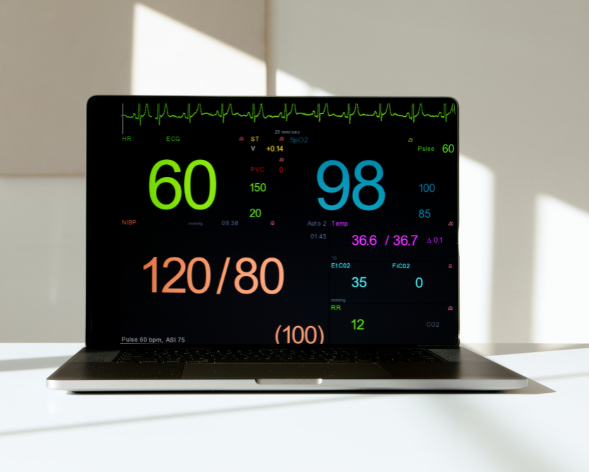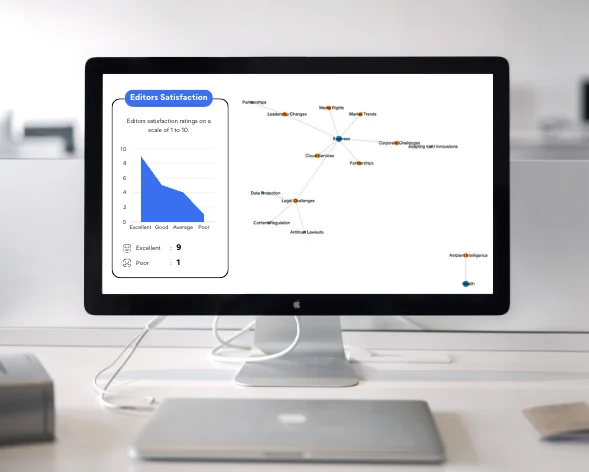
Prediction software that played a key role in achieving a 46% decrease in the likelihood of treatment-related side effects, enhancing overall patient safety and reliability.
Client
Pharmaceutical company specializing in oncology, gastroenterology, and neuroscience drugs development.
Objective
The projects aimed to use predictive analytics to identify patients at risk of non-response to cancer treatments, assess the safety of a new pediatric vaccine, and evaluate allergic reaction risks associated with epilepsy drugs. The objective was to empower clinicians and regulators with data-driven insights to improve patient care and safety.
Solution
Achievion leveraged sophisticated data analytics and machine learning models across multiple use cases, from oncology and vaccine safety to drug allergy risk assessment. Each of these areas required tailored approaches and predictive models to address unique healthcare challenges.
1. Machine Learning Models and Techniques
We employed a variety of machine learning models, including LASSO logistic regression, Gradient-Boosting Machines (GBM), Random Forests (RF), Naive Bayes, and Neural Networks, to maximize predictive accuracy and insights. By selecting models suited to each project’s unique data characteristics, the team achieved precise predictions and valuable insights that were directly applicable to real-world clinical decision-making.
2. Data Integration and Preparation
For each project, Achievion performed extensive data preparation and integration to ensure comprehensive analyses:
- Oncology: Data was drawn from observational, retrospective studies in new-user cohort datasets. By focusing on NSCLC patients with uncommon genetic mutations, we identified high-risk profiles for non-response to ALK inhibitor treatments.
- Vaccine Safety: Extensive information was extracted from Electronic Health Records (EHRs), doctor’s visits, urgent care records, and hospital admissions. The data preparation process included detailed aggregation of variables like age and prior health status to assess risk probabilities for vaccine-related side effects.
- Drug Allergy: The allergy risk analysis covered data on 276,665 epilepsy patients, segmented into multiple datasets. This allowed for more granular analysis and a deeper understanding of potential allergic reactions, particularly with specific epilepsy drug components.
3. Advanced Analytics Tools and Techniques
The projects utilized a range of analytics tools, including SQL, R, Python, RStudio, and Atlas. These tools supported complex statistical modeling, predictive analysis, and the ability to handle large healthcare datasets. For instance, SQL and Python enabled data cleaning and transformation, while R and RStudio facilitated model tuning and result visualization, enhancing the interpretability of predictions for clinical stakeholders.
4. Custom Algorithm Development
For each project, our team developed custom algorithms to deliver precise predictions and actionable insights:
- Cancer Treatment Predictions: The algorithms predicted the likelihood of treatment non-response, empowering clinicians to make evidence-based decisions and consider alternative treatments or clinical trials.
- Vaccine Side Effect Risk Assessment: The solution computed the probability of fever and seizure post-vaccination, offering vital information to caregivers and regulators on vaccine safety for children.
- Drug Allergy Prediction: The algorithms analyzed allergic reaction risks to epilepsy drugs, supporting clinicians in optimizing prescribing decisions.
Result
Our AI-powered drug effectiveness prediction software has proven instrumental in improving treatment outcomes. By leveraging advanced Machine Learning techniques and data-driven insights, we not only increased treatment efficiency but also reduced the risk of side effects for patients undergoing drug therapies.
Increased treatment efficiency: the implementation of the AI-powered software led to a 28% improvement in treatment efficiency for widely spread diseases, significantly enhancing the overall effectiveness of medical interventions.
Side effects risk reduction: by accurately predicting drug effectiveness, the software contributed to a 46% reduction in the risk of side effects associated with the treatment, ensuring a safer and more reliable patient experience.
More stories

AI solution demonstrated that large language models can meaningfully assist in the architectural specification process.

AI-powered heart monitoring system brought significant advancements to cardiac care.

AI solutions that boosted the hospital’s operational efficiency and patient care.

The optimized tagging process reduced content editor’s time dedicated to manual tagging tasks.

AI-powered dataset management solution reduced operational costs by 29%.
Get in touch to learn how our AI powered solutions
can solve your business problem.

